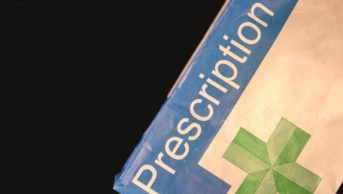
Shutterstock.com
The new medicines service (NMS), delivered by community pharmacists in England, has the potential to save the NHS hundreds of millions of pounds and could be expanded to cover more long-term conditions, according to UK researchers[1]
.
The researchers, who came from the University of Manchester and University of Nottingham, found that in its first five years, the NMS saved the NHS £75.4m.
The evaluation was based on the results of a randomised controlled trial involving 504 patients (251 who received the NMS service and 253 who received a normal service) which assessed the effectiveness of the NMS over 10 weeks. According to patient reports, it was found that the NMS “significantly” increased the proportion of adherence by 10.2% (70.7 % compared with normal practice of 60.5 %).
They also discovered that the NMS generated a mean of 0.05 (95% confidence interval [CI] 0.00–0.13) more Quality Adjusted Life Years (QALYs) per patient, at a mean reduced cost of -£144 (95% CI -769 to 73).
Writing in the journal PharmacoEconomics (online, 3 August 2017), the researchers said that their economic evaluation suggests £75.4m short-term savings to the NHS, £517.6m long-term cost savings to the NHS and 179,500 QALYs gained. They recommended that on the basis of their evidence, the NMS should continue to be commissioned.
Lead researcher, professor of health economics and pharmacist, Rachel Elliot, said the study shows that the NMS works and is successful in the current NHS climate.
“It’s very good news for community pharmacists,” she said.
“When people start taking medicines, it’s at about two weeks that they start to make decisions about whether they will carry on with them. Under the NMS, pharmacists get in early and discuss some of those issues, and if necessary refer back to the GP.
“We have confirmed that it saves money, and, looking further into the future, that it is going to improve patients’ quality of life,” she added.
According to the study, community pharmacists have carried out 3.59 million NMS consultations since the scheme was introduced in 2011 to the end of August 2016. Under the NMS, community pharmacists support patients when they are first prescribed medicines for the management of hypertension, type 2 diabetes, chronic obstructive pulmonary disease, asthma and anti-platelet regimens.
But Elliott said the service could bring similar benefits to other long-term conditions and that there is already interest expressed from patient charities supporting people with Alzheimer’s disease, mental health conditions and glaucoma.

Source: Courtesy, Liz Butterfield
Liz Butterfield, member of the Royal Pharmaceutical Society’s English pharmacy board says GPs and practice pharmacists have to recognise the new medicines support that community pharmacists can offer
Liz Butterfield, a member of the Royal Pharmaceutical Society’s (RPS) English pharmacy board with an interest in medicines optimisation, said that the results are very encouraging.
“This sort of service should be routinely integrated into care pathways to ensure that outcomes are as successful as possible,” she added.
But Butterfield said that there needs to be a cultural shift to achieve this — GPs and practice pharmacists have to recognise the new medicines support that community pharmacists can offer and patients also have to appreciate the accessible medicines advice and support that community pharmacists provide.
“This is about proper integrated care and this report is a fantastic start to enable that,” she said.
Alastair Buxton, director of NHS services at the Pharmaceutical Services Negotiating Committee (PSNC), said that he was delighted to see yet another piece of analysis supporting the benefits of the NMS, with researchers this time concluding that the service improves patient outcomes and can reduce costs for the NHS in the long term.
“This will, of course, come as no surprise to the community pharmacists offering the service every day, and seeing the positive difference that it makes for their patients,” he said.
References
[1] Elliott RA, Tanajewsk L, Gkountouras G et al. Cost effectiveness of support for people starting a new medication for a long-term condition through community pharmacies: an economic evaluation of the New Medicine Service (NMS) compared with normal practice. PharmacoEconomics 2017. doi: 10.1007/s40273-017-0554-9


